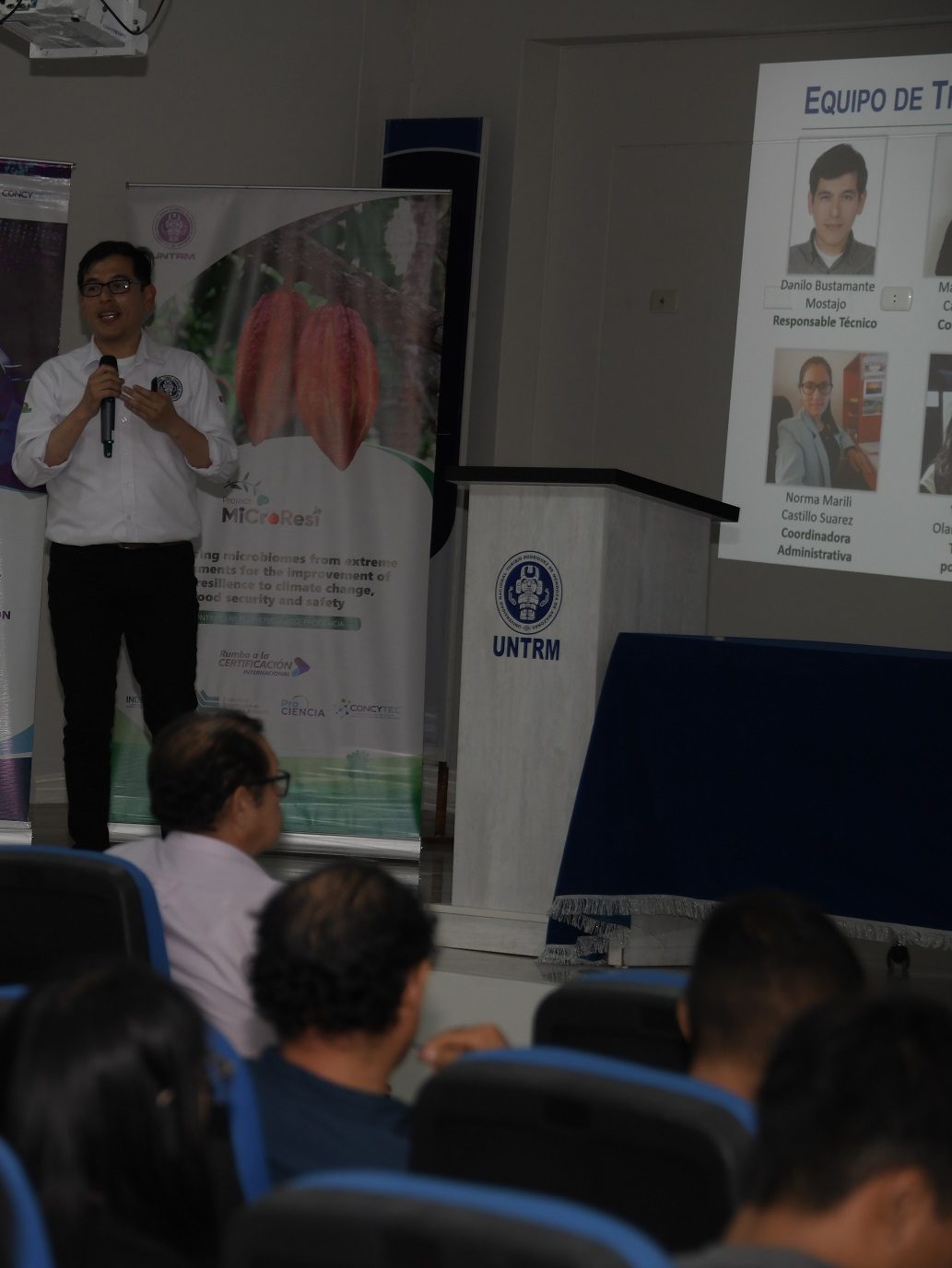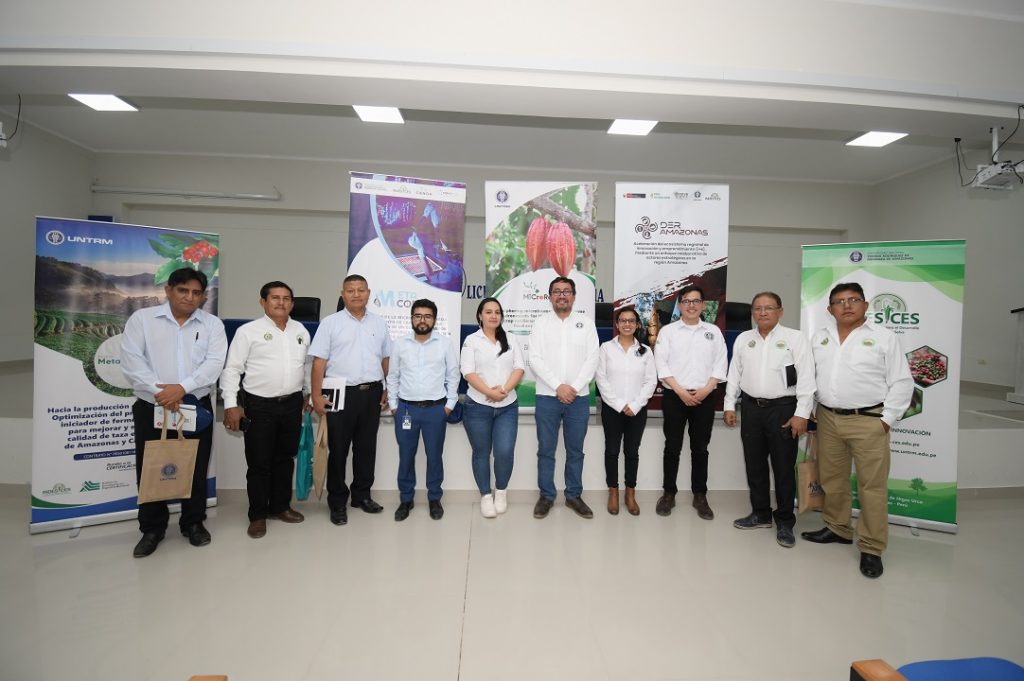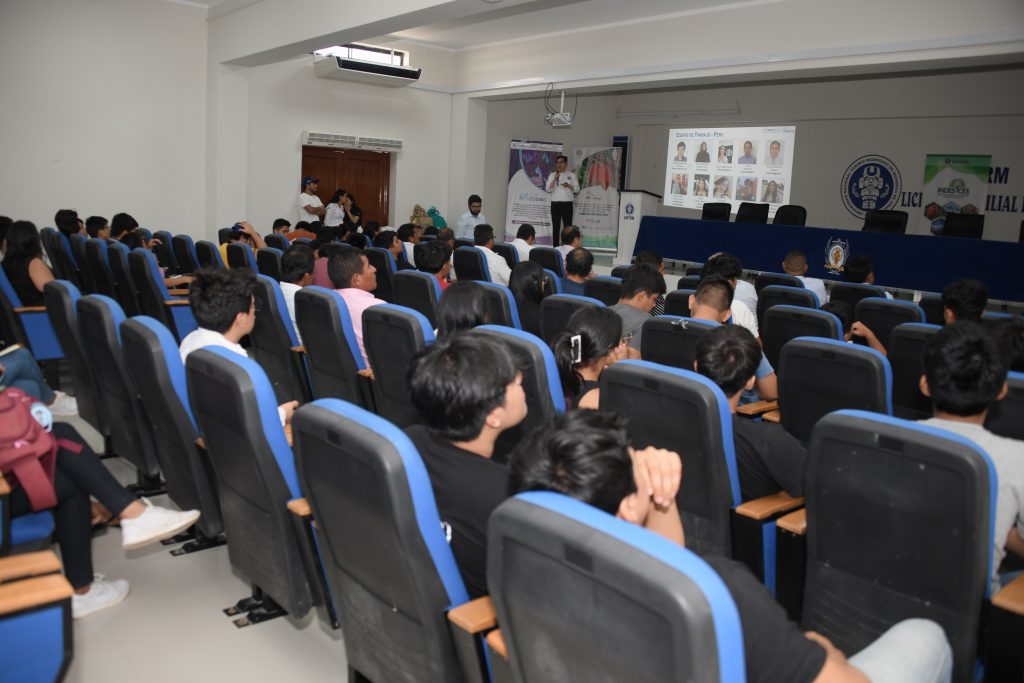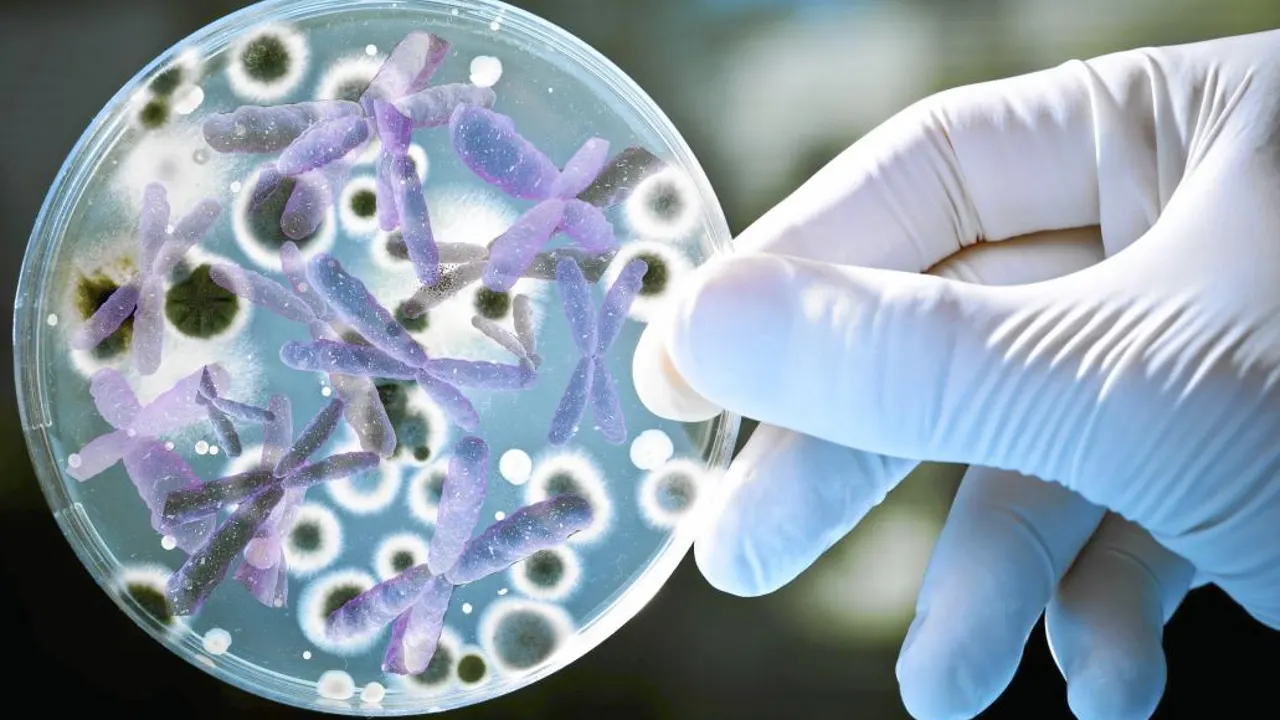Microresi Peru
PROJECT RESULTS PRESENTATION
Exploring Microbiomes from Extreme Environments to Enhance Crop Resilience
Welcome to our project, “Deciphering Microbiomes from Extreme Environments for the Improvement of Crop Resilience to Climate Change, Food Security, and Safety.” We are dedicated to uncovering new insights that will revolutionize agricultural practices worldwide. Our research focuses on bacteria tolerant to cadmium found in cocoa farming soils. Cadmium tolerance is crucial for sustainable cocoa production, especially under changing climate conditions.



Through this study, we aim to identify microbial strains that can enhance crop resilience, ensuring the future security and safety of our food supply. We are thrilled to announce that our dissemination event took place on June 19, 2024, at the National University Toribio Rodríguez de Mendoza de Amazonas in Bagua City. This event provided a platform to share our initial findings and discuss their potential implications with stakeholders and researchers alike. Stay updated as we continue to uncover more about these resilient microbiomes and tfacheir role in securing our agricultural future.
MicroResi team participation in Congresses and Symposiums


XVII CONGRESO NACIONAL DE BOTÁNICA


Participation in the International Conference: Impacts of Soil Amendments on Rainfed Agroecosystems, held at the University of Reims Champagne-Ardenne. This scientific event brought together specialists from various countries who presented their research on improving crop yields.
The event also featured the participation of Dr. Maria Luz Cayuela, Technical Manager of the Microresi Spain project (CEBAS).
At this event, the results of the research study titled Functional Profile of the Microbiota Associated with Soils from Cocoa and Coffee Farms with Potential Plant Growth-Promoting Effects in the Department of Amazonas were presented. This research was funded by the MICRORESI Project No. PE501079652-2022-CONCYTEC.


Found results of the study
▪ 32,988 in total ASVs. After normalization were found 19,874 in cocoa and 13,114 in coffee.
▪ Alpha cocoa diversity ➔ Utcubamba is slightly more diverse than Bagua but not significantly.
▪ Coffee alpha diversity ➔ Luya is slightly more diverse than Rodriguez but not significantly.
▪ Phylum Acidobacteriota, Planctomycetota, and Proteobacteria were the most predominant in cacao soils.
▪ Phylum Proteobacteria, Verrucomicrobiota, Acidobacteriota, and Actinobacteriota were the most predominant in coffee soils.
▪ Lipid and cofactor metabolic pathways were predominant in cacao soils microbiota, while amino acid and carbohydrate pathways were in coffee soils microbiota.
▪ The categories of genetic information processing and cellular processes show higher activity in cocoa soils microbiota compared to coffee.
This could reflect a higher metabolic complexity in the cocoa-associated microbiota.









